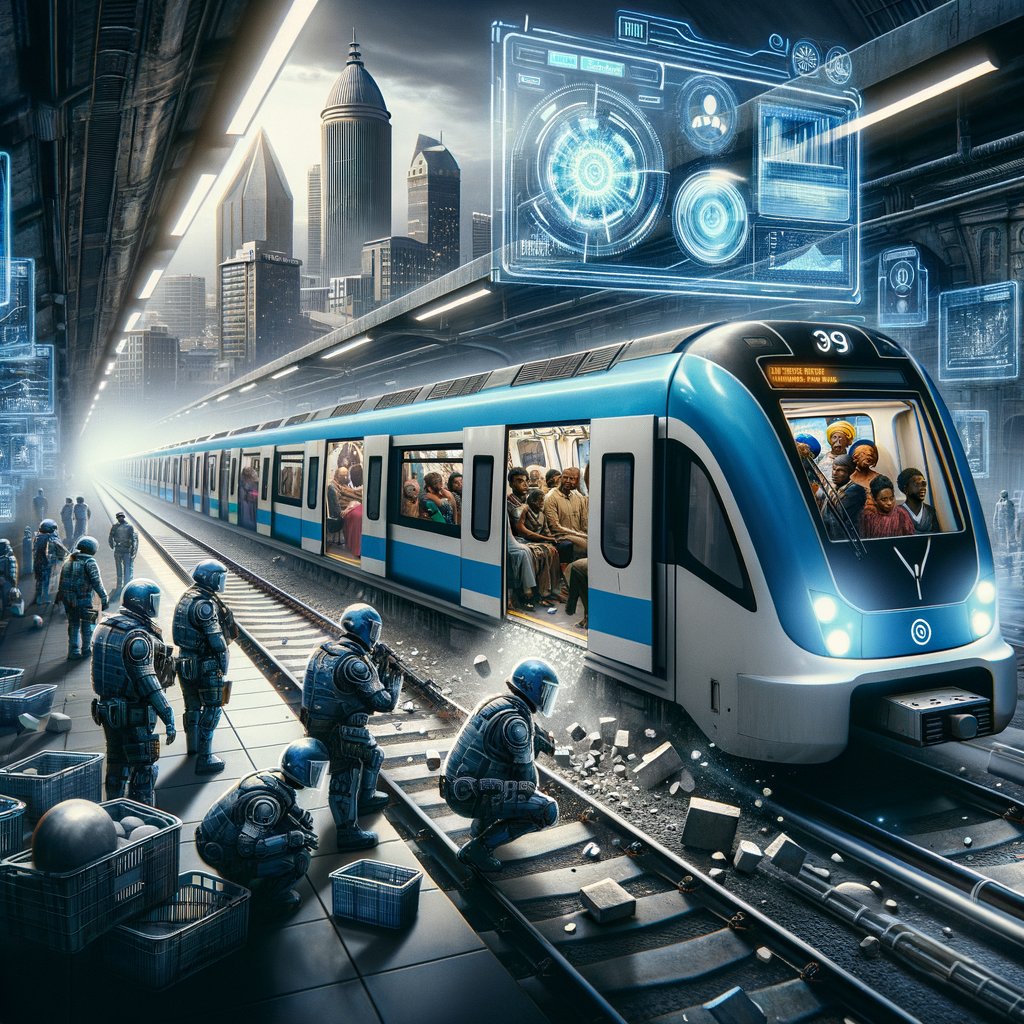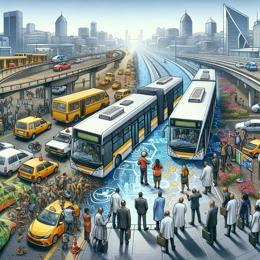Image created by AI
Cape Town Trains Under Siege: Commuters Call for Action as Stone-Throwing Incidents Surge
The Metrorail train service in Cape Town is grappling with a surge of vandalism as 16 of the Gibela manufactured "Blue Trains" have been sidelined for repairs after suffering damage from stone-throwing incidents. Earlier reports indicated that as many as 36 trains were impacted by similar attacks, highlighting an alarming trend in the region. The destructive activity, which seems to take place predominantly along the Central Line, poses a direct threat to the safety of daily commuters and the continuity of public transport services.
Incidents occurring between Netreg and Heideveld, as well as Nyanga and Philippi train stations, have become notorious for these attacks. Eyewitness accounts from passengers such as Mzwakhe reveal the climate of fear within the carriages as people are forced to duck for cover, interrupting their routine with chaos and danger.
The repercussions of these acts stretch beyond immediate safety concerns; the damage caused directly affects train service schedules, resulting in significant inconveniences. Notable lines affected include key routes such as Cape Town to Simon's Town and Cape Town to Bellville. A recent signal equipment failure at Wynberg station further compounded the troubles on the Southern Line, leading to drastic service reductions.
Metrorail spokesperson Zinobulali Mihi condemned the malicious behavior and highlighted efforts with police and communities to curb these occurrences. She appeals to the public to report any observed vandalism to improve response times and preventive measures.
Equally, the manufacturing of these modern trains represents a significant investment in South Africa's public transport sector, with Gibela Trains Rail Consortium contracting to supply a substantial number of Electric-Multiple Unit trains by 2030. This underscores the need to protect these assets vigilantly.
The solution appears multifaceted, combining heightened security with engaged community action. Phelisa Dlangamandla from the #UniteBehind organization echoes the calls for visible security presence, bringing attention also to the city's law enforcement responsibilities in safeguarding these vital services. She, alongside others, acknowledges the importance of the commuter rail system as a backbone of public transport, especially during its current phase of revitalization.
Dlangamandla also points to systemic issues within the Passenger Rail Agency of South Africa (PRASA), underscoring decades-long delays in the modernization of facilities essential for the maintenance of the new trains. Upgraded depots are crucial to minimize service disruptions and enhance overall efficiency.
The situation calls for an immediate and sustained reaction from authorities, stakeholders, and the community to ensure the continued safety of the public transport system and those who depend on it.

